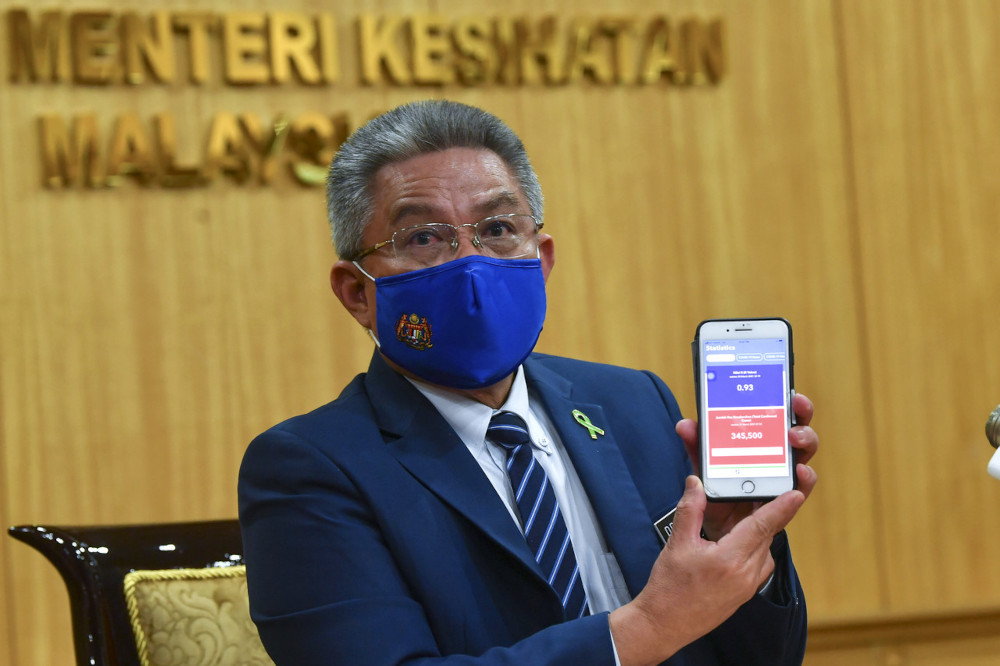
Subscribe to our Telegram channel for the latest updates on news you need to know.
PUTRAJAYA, April 1 — The second phase of the National Covid-19 Immunisation Programme will start on April 17 instead of April 19 as previously announced, said Health Minister Datuk Seri Dr Adham Baba.
He said the registration campaign needed to be intensified as people aged 60 and above and individuals with comorbidities made up only 30 per cent of the seven million people who had registered through the MySejahtera application.
“We need to intensify the campaign to increase vaccination registration through five methods, namely through MySejahtera or the Ministry of Health (MOH) website, contacting the hotline, going to district health centres and through non-governmental organisation (NGO) outreach programmes that also focus on the homeless and illegal immigrants,” he said.
A total of 9.4 million vaccine recipients are targeted in the second phase involving high-risk groups including the elderly, chronic patients, people with disabilities (OKU) and individuals with comorbidities.
Dr Adham told this to the media after witnessing the signing of an agreement between the Ministry of Health and Solutions Biologics Sdn Bhd (SolBio) to produce the CanSino Covid-10 vaccine from China on a “fill and finish” basis, here today.
Dr Adham said the vaccination exercise would continue during the fasting month and that night appointments at certain Vaccination Centres (PPVs) would be offered to vaccine recipients.
Asked about the ban on vaccine exports in several countries to meet domestic demand following increase in Covid-19 infections and lack of supply, Dr Adham said it would not affect the ongoing immunisation programme in Malaysia as suppliers had committed to the government that delivery would be on schedule.
For example, he said Malaysia would procure the AstraZeneca vaccine from factories in Thailand through direct procurement, while the supply of AstraZeneca vaccine through the Covax facility would come from South Korea.
“These things are all guaranteed. So the issue of delays in the supply of vaccines from suppliers does not arise for Malaysia. We can execute all schedules and deliveries within the stipulated time, but we hope deliveries can be expedited if possible,” he said.
It was reported that India has temporarily halted all major exports of AstraZeneca vaccine produced by the Indian Serum Institute (SII) to meet domestic demand following the increase in Covid-19 infections in the country.
The move as reported will also affect supply to the World Health Organisation (WHO)-backed Covax vaccine sharing facility where many countries are expected to get their respective doses.
Covax is a global initiative aimed at equitable access to Covid-19 vaccines. — Bernama



